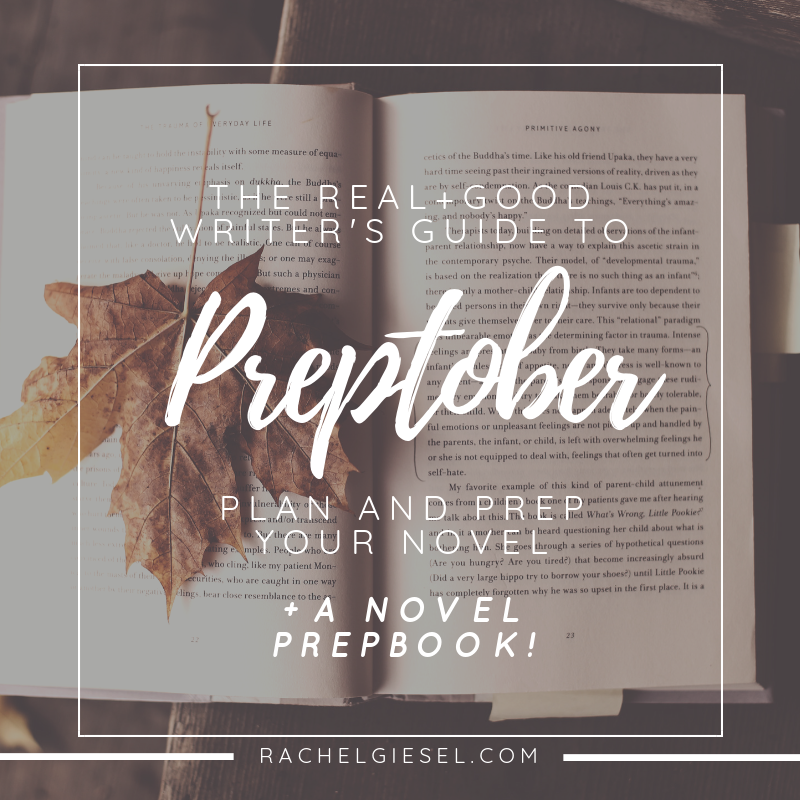Have you ever said or thought any of the following statements?
I want to write, but I should do the dishes.
I'm just not inspired right now.
I'll write tomorrow, because then I'll have more time.
I'm just too busy to write right now.
I have so many things to do! How can I possibly fit writing a novel into my life?!
I don't have enough time.
How does she do it? She's so busy and yet she still makes time to write every day. I could never do that.
I will write; I'm just going to binge-watch this entire show on Netflix first.
Or perhaps that isn't the issue. How about any of these statements?
I'm going to write today (and then you look up and it's 9 o'clock and you still haven't written a word).
I'm going to write as soon as I get home (and then you do the dishes and make dinner and cuddle up for movie time and before you know it you're in bed and no writing has been done).
I'm going to write (and then you DO sit down with your writing, but you're uninspired and you end up staring at the blank page wondering why you ever wanted to do this at all).
Don't worry. You're not alone.
When we came to writing, we came with love and joy and play. We wrote because we were inspired, because we did have something to say, because we loved the act of writing itself. When we decide to take it seriously, we're not always inspired, we don't know what to say, and we get angry at the process, wishing it to just be done already so we can reach our dreams. But, we've got to do more than just think about writing. We've got to actually put butts in the chair day after day and make words magically appear on the page. We have to commit to doing it, and then actually do it.
This is easier said than done.
And yet the secret, that magical silver bullet we've all been looking for, is really very simple. The key to getting our writing done is by actually doing the writing; whether it's fun or terrible, flowing easily or pulling teeth, feeling inspired and confident or uninspired and doubtful. We have to sit down and write. We have to apply discipline to our lives.
Shocking news; I know.
Luckily, discipline brings some magic with it. When we learn to discipline ourselves, we actually learn to train our muse to show up with us to write day after day. We start to feel inspired on command. We start to get excited. We see the progress and we feel motivation to move forward. Discipline enables the muse, the inspiration, to come on your time, and that can be whenever you decide.
“Discipline commands the muse to come on your time and trains it to show up with you day after day.”
Are you ready to get the muse on board with your schedule and start making real progress with your writing goals? Let's do it!
So, how do we do it? How does discipline work?
In order to apply discipline to your writing life, you've got to give yourself some boundaries and some rules to follow. You've got to figure out what a solid writing session looks like to you to maximize your personal productivity times, places, and methods. You've got to schedule it into your calendar in order to make it a priority that you don't forget or give up on. And you've got to habitualize it through consistent practice in order to train your muse to show up every time without hesitation.
1 | Figure out your when+where+how+success measure
There are certainly times in your writing life where things have been more productive than other times. Perhaps you enjoy writing in the mornings, or perhaps you always write while eating chocolate. Perhaps you hate writing in the mornings, or perhaps you can't write on a computer at all. There are different times, places, methods, and measurements that can help you, and also some that simply won't work for you at all.
Your job is to experiment and find the BEST ones for you personally so you can have good writing sessions as frequently as possible.
Think about your writing life. When do you get the most writing done? When do you feel the best when you write? Where do you like to write? Do you count pages or do you count words? Do you write in the bathtub or in your car or outside? Do you always eat a snack while you write or do you like to light a candle before a writing session? What does a productive writing session look like for YOU?
As you consider this, there are four ingredients you need in every writing session:
Your When – What time are you in your best writing mood?
Your Where – What place inspires you and comforts you the most?
Your How – What tools do you like? Pen? Computer? Do you listen to music? Do you sit or stand?
Your Success Measurement – How will you know you've had a good session? What are your mini-session goals?
You may already have some rough idea of how these are playing out in your writing life. But they may also be different than you think. You're going to want to experiment with a few different variations in order to figure out what truly works for you. (Dive even deeper with more ways to experiment with your writing life right over here).
Multiple attempts of a certain element will give you a clearer idea of if it works for you rather than just trying it once. I'd suggest experimenting with each different element 7-10 times before truly deciding if it's for you or not. Go have ALL the fun with this!
2 | SCHEDULE IT INTO YOUR CALENDAR (PRIORITIZE WRITING!)
Once you've figured out a good time, place, method, and measurement for each writing session, you've got prioritize it. A lot of times, we'll say we don't have enough time. We'll say we're too busy. We'll say we have other things to do. But in reality, you have just as much time as anybody else, you're probably not the busiest person in the world, and you might have other things to do, but writing IS one of those things too.
The only way you'll get writing done is if you choose to get writing done. You can't wait around for ideal conditions. You can't wait until you have more time. You can't wait until you're less busy. You can't be spontaneous. You can't wait until you're inspired. You have to make a conscious decision to take this seriously and treat it as if it's just important as anything else (because it IS).
One of the best ways to give writing the gravitational weight it needs to get your butt in the chair is to schedule it into your calendar. Armed with your best writing times, schedule yourself a "meeting" with writing when it works best for you. This is an "appointment," a "date," a very important event that you CANNOT miss out on. Seeing it stare you down in your calendar will focus you, remind you, and help you actually sit down and do it.
3 | make it a habit with CONSISTENT PRACTICE
You can't just have one meeting with writing once a month. If you're actually trying to go after your writing goals and achieve them, you've got to make this a consistent, frequent, reoccurring thing. Some writers even swear by a daily habit. However frequently you decide to and are able to write is dependent on you. But the only thing it must be is consistent.
What happens when you consistently do something is that you build a habit. You already have lots of habits throughout your life, but now you want to create a new habit of writing often and consistently.
The best way to create a habit is by using The Habit Loop, a concept created by psychologist Charles Duhigg. At its most basic level, The Habit Loop asserts that there are 3 main components of a habit: Cue, Routine, and Reward.
When you're going to do the habit, the entire behavior is first sparked by a psychological cue, something that reminds you to do it, something that sets off the following chain of events, something that mentally prepares you to complete the behavior.
Then, you jump into action. You do the routine, the behavior, the actual verb of whatever habit this is.
And after the behavior is done, your behavior is cemented with a reward. It may be something actually physical (such as a piece of chocolate) or something small and invisible (a sense of calm). But whatever this reward is, your brain decides it likes it enough that it's going to keep doing that habit in order to get that reward.
When you make writing a habit, you have to fill in The Habit Loop system. You want to set a cue, or some kind of indicator that gets you mentally prepared to write (aka, calling the muse to come work with you). Then you want to do the behavior (the actual writing itself). And then you want to reward yourself, giving yourself some kind of happiness in order for your brain to cement this as a good, enjoyable, successful behavior (and so it will remind the muse to show up again next time too).
If you're looking for a good cue, look to your When-Where-How-Success Measure. This set-up, with consistency, will instantly get you in the mood to write. You may also look to what truly inspires you (which is, of course, tied to these components). Perhaps you like to sit down with some tea. Perhaps you like to light a candle. Perhaps you like to read a short piece of fiction or a poem before you start to write. Do whatever triggers your mind to get in the mood to work on your writing.
For your reward, you may choose to document your successful writing sessions with stickers. Every time you have a successful writing session, you put a cute little sticker on your calendar as a reward. This seems frivolous, I know. But rewarding yourself with a sticker on the days that you write does AMAZING THINGS for your motivation. Your reward doesn't have to be crazy; it just has to be a little teeny-tiny something that helps to encourage and cement the behavior.
When you're first starting out, your habit loop might not instantly make the muse appear. The way that you get this to work is by doing it again and again and again. Imagine you're training a dog. At first, when you tell that cute little puppy to sit, it's just going to smile and ignore you. But with consistent, repetitive practice, you WILL teach that puppy to sit. It just has to go through the whole loop enough times to cement the cue, behavior, and reward together.
The same is true for your muse. Take the time to really train your muse to show up. It will only happen with consistent, repetitive practice. But soon enough, you'll have the muse by your side every single time you sit down to write.
Happy (+Productive) Writing!
♥
Do you have a disciplinary plan for your writing life? What are your best writing sessions like? have you learned to make writing a habit?
















